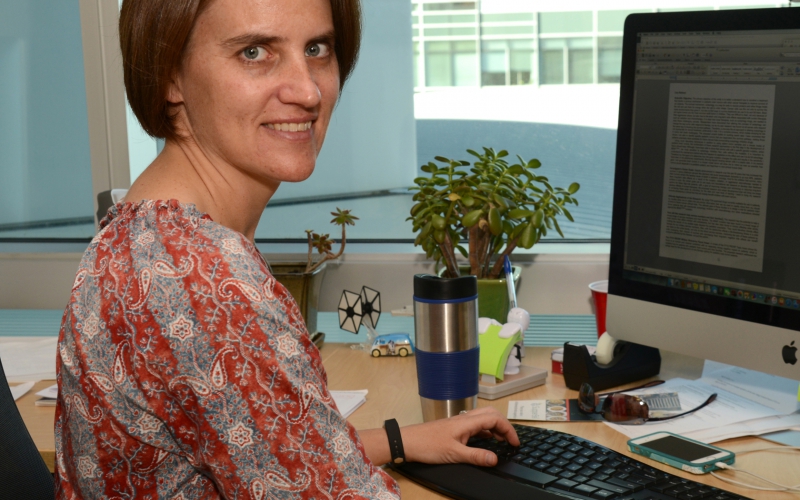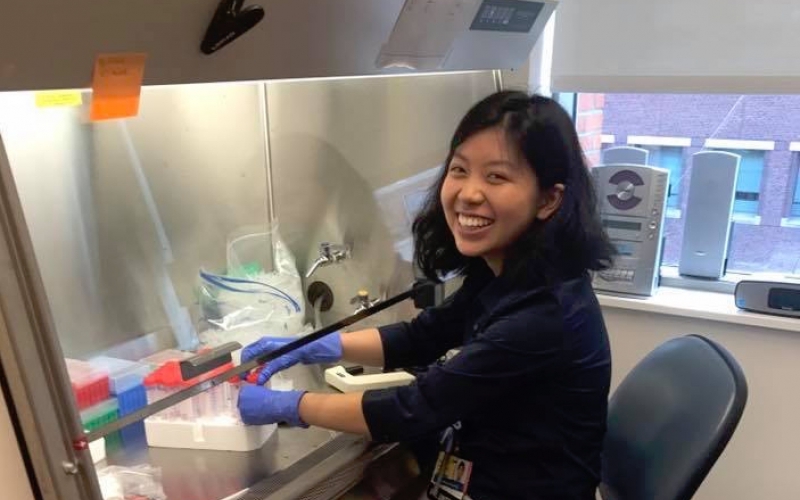The Childhood Cancer Blog
The Childhood Cancer Blog
by Trish Adkins, ALSF
Dr. Jean Mulcahy-Levy, of the University of Colorado Denver got her start in research studying the behavior of fruit bats at the zoo.
Now, she’s using Nobel Prize-winning science to find cures for brain tumors.
Dr. Mulcahy-Levy’s research focuses on how blocking a cellular... Read More

Dr. Catherine Flores, with childhood cancer hero Sawyer.
by Trish Adkins, ALSF
Ever since she was a child, Dr. Catherine Flores, of the University of Florida, loved the challenge of experimenting and investigating the origins of things. Now, as a pediatric cancer researcher, Dr. Flores is applying those interests to curing childhood brain cancer.
ALSF awarded Dr. Flores a Young Investigator grant in 2015, which she used to study the preclinical development of adoptive cell therapy to fight... Read More
by Trish Adkins, ALSF
For as long as she can remember Sabrina Wang, a student at Johns Hopkins University in Maryland, wanted to be a scientist. As an undergraduate student, Sabrina received a 2016 Pediatric Oncology Student Training (POST) grant from Alex’s Lemonade Stand Foundation (ALSF) to work with Drs. Eric Raabe, Charles Eberhart and Jeffrey Rubens at Johns Hopkins.
Sabrina spent the summer working in the lab, learning and studying... Read More
Pages




